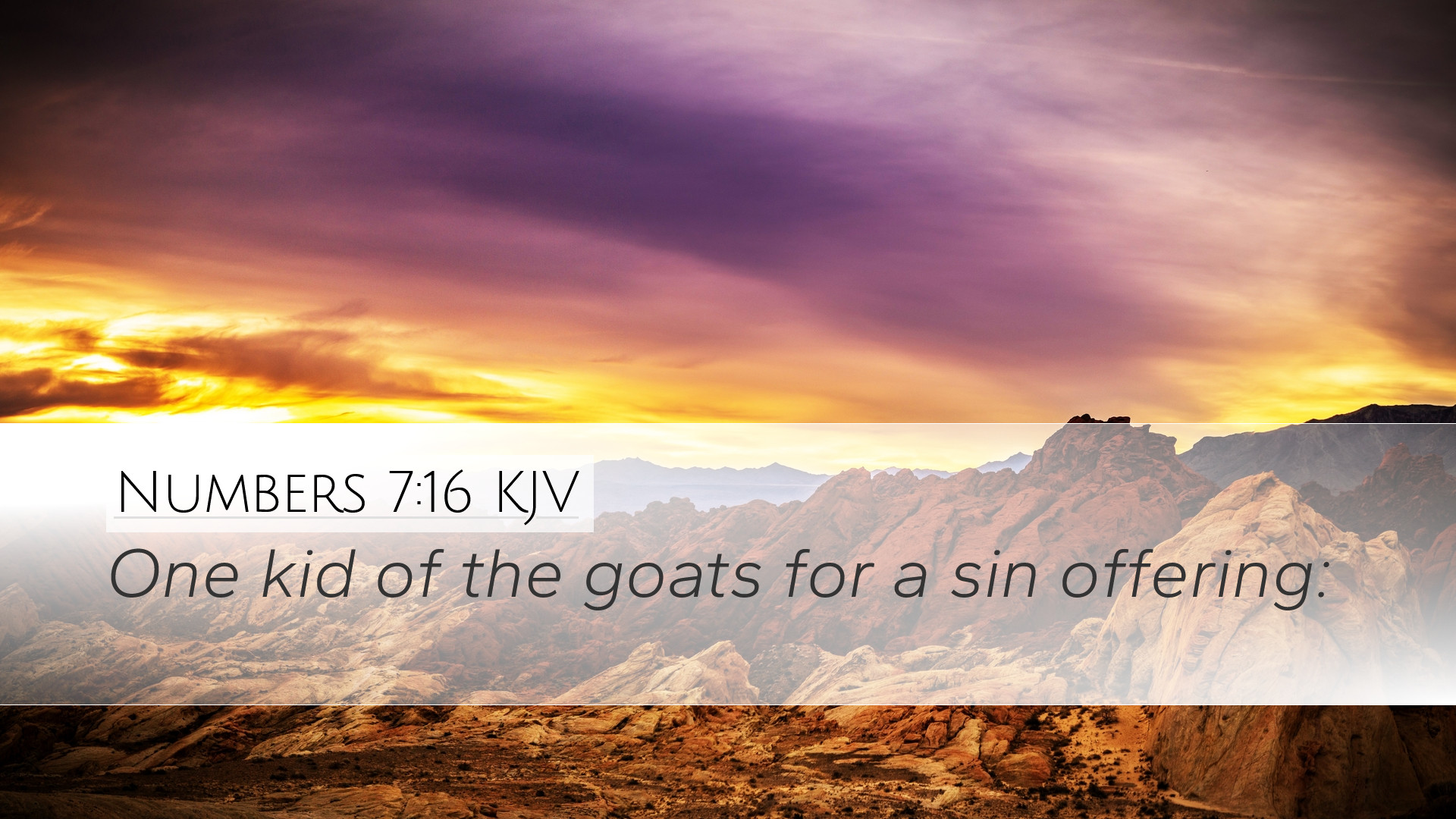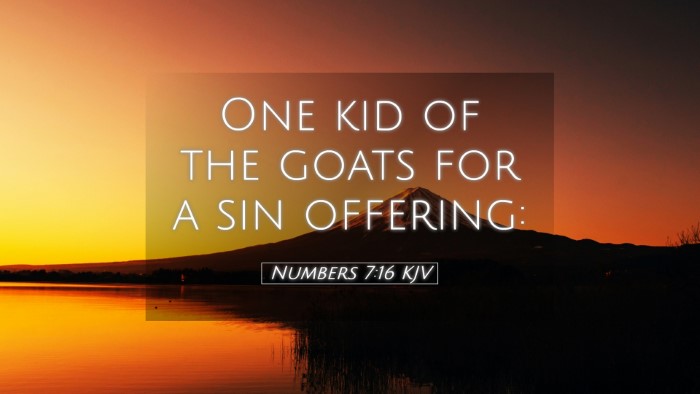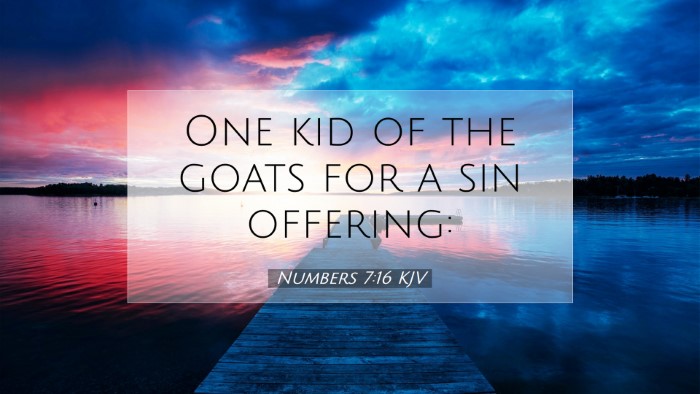Commentary on Numbers 7:16
Numbers 7:16 reads: "And for the sacrifice of peace offerings, two oxen, five rams, five he-goats, and five lambs of the first year: this was the offering of Abidan the son of Gideoni." This verse is part of a larger section detailing the offerings made by the leaders of Israel as they consecrate the tabernacle and begin their journey toward the promised land. Below is a comprehensive commentary drawn from notable public domain sources.
Contextual Background
Historical Context: This passage is set during the time of Israel's wilderness wanderings. The Israelites have been organized into tribes, and each tribe's leader brings offerings at the dedication of the altar. Numbers 7 provides an account of the offerings given by each tribe, emphasizing the communal and individual commitments to God.
Theological Significance: The offerings represent dedication, communal worship, and the acknowledgment of God's provision and presence among His people. Various types of offerings were stipulated in the Law, each serving different purposes ranging from atonement to thanksgiving.
Verse Analysis
Offerings List
- Oxen: The inclusion of two oxen highlights the seriousness of the offering—oxen were valuable and represented strength. Their sacrifice served as a significant act of worship.
- Rams: Five rams are noted, which were often chosen for their ability to represent peace and reconciliation, signifying a restored relationship with God.
- He-goats: He-goats symbolize sin offerings; thus, they represent the communal acknowledgment of sin and the need for sacrifice.
- Lambs: Five lambs of the first year were considered prime offerings, representing innocence and purity.
The Role of Abidan
Abidan, being the son of Gideoni, takes center stage in this offering. Matthew Henry notes that the leaders of the tribes participated in the offerings, establishing a precedent for leadership in worship. The act symbolized not merely a personal offering but a representation of the tribe as a whole.
Theological Reflections
Community and Individual Offerings
The collective nature of the offerings emphasizes the importance of community in worship. Albert Barnes points out that individual contributions brought together manifest a unified intention towards God. As individual parts dedicated to God, they form a larger whole that demonstrates the unity of Israel as God’s chosen people.
Significance of Peace Offerings
The “sacrifice of peace offerings” mentioned in this verse encapsulates the idea of peace between God and man. Adam Clarke elaborates that these offerings were to express gratitude towards God for His blessings and to celebrate the peace granted by Him. Peace offerings were pivotal, indicating restoration and favor.
Spiritual Implications
Modern Application
This ancient practice, while seemingly foreign to contemporary audiences, holds layered meanings for modern believers. Pastors and theologians can draw parallels between these offerings and the sacrifices made in the New Covenant through Christ, who embodies the ultimate peace offering.
Call to Action
- Generosity in Worship: Just as the leaders offered significant contributions, modern believers are encouraged to give generously, whether in worship, service, or resources.
- Peace and Reconciliation: These offerings call for reflection on the state of one’s relationship with God and others. Pastors may encourage congregants to pursue reconciliation and peace in their lives.
- Community Engagement: Engagement in communal worship and service is paramount. Believers are reminded that their contributions matter in the context of their community of faith.
Conclusion
Numbers 7:16 serves as a reminder of the beauty in communal worship and the importance of offering to God out of gratitude and recognition of His sovereignty. As we reflect on the offerings of ancient Israel, we are invited to consider what we offer to God today and how our individual acts of worship contribute to the body of Christ.


